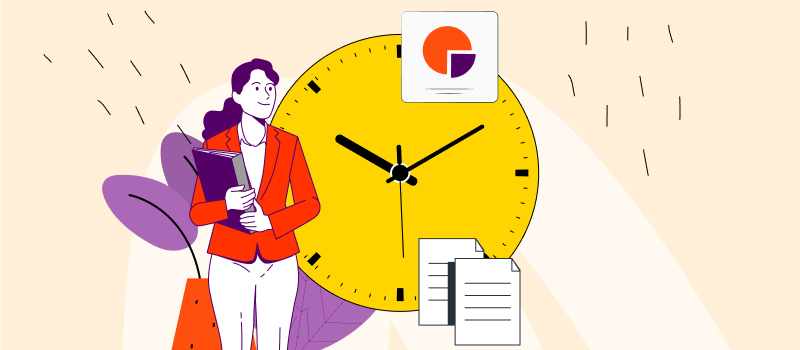
In general, payroll records include all pieces of information related to your employees’ pay. That way, if there are any questions or issues around payroll, you have references of weekly hours, paycheck breakdowns, employee information that ensures they are getting their regular payments, and other helpful tools. With organized payroll records, your business can stay on top of all your accounting and ensure your employees receive proper regulated payments.
Risks of Failing to Keep All Necessary Information in Payroll Records
Tax Audit
Your payroll records hold valuable information not only for you and your employees, but also for federal organizations. Your documents will show your employees’ tax payments deducted from their regular paychecks and your tax payment to tax revenue agencies.
For this reason, it is a legal obligation that you hold onto payroll records. You are acting as a government agent as your employees pay their taxes through you, which is why you will be under close watch by agencies to ensure you are correctly paying and deducting from your employees for federal and state benefits. If you do not maintain your payroll tax records, you may be subject to an audit.
Department of Labor Audit
Another reason to maintain proper records is in case of a potential Department of Labor investigation. These can be random or follow a current or past employee complaint. During this audit, a department agent will go through your payment and employee records.
Conducting this thorough search is intended to ensure the employee has been properly paid, according to DOL standards. The goal of these audits is to commonly investigate if you’ve been meeting minimum wage or overtime requirements, or stat holiday pay/other details.
To properly pass these audits, you will want easily accessible payroll records to demonstrate your accordance with tax and labor regulations. This applies when processing your payments to employees currently working for you or who recently worked for you. That’s why you will want organized files with names and dates that can help you when searching through payroll record evidence.
Properly managing payroll records can save your business any risk of fines or penalties associated with missing information.
Where Do You Keep Employee Payroll Records?
Keep your employee payroll records in one retrieval system for your human resources team, the accounting department, or you, the employer, to quickly retrieve. The accounting department will likely need the most regular access to these files, so keeping them organized and easy to find will save them much time and trouble when processing employee payroll.
Leave employee payroll records in one committed space, so access is limited only to the parties who need the information. These files will include confidential information, so you want to keep it protected. That’s why securing these files with passwords is helpful if you rely on digital record-keeping. If you hold physical records, you should have them neatly organized in binders or files and kept in a damage-proof, secure space.
Information to Keep Within Your Payroll Records
The information you keep in your payroll records will include personal information like I-9 documents, banking details, work attendance and wage information. These involve what you are paying your employees and how they’re receiving their paychecks.
The stored files also need to include payroll tax information, so you are covered in the case of an audit, and your employees can ensure they’re correctly paying their state and federal taxes through their payment deductions.
There are three tiers of information and specific details or documents to keep in your employee payroll file:
1. General Employee Information
You must include this information that is collected from your employee during their hiring process:
- Full name
- Sex
- Home address
- Date of birth
- Social security number
- Job position with your business
- Offer letter with their signature and your own
2. Time-Related
For reference to the hours that you’ve paid your employees for, you will need to hold onto:
- Regular shift hours and the first day of their workweek
- Total daily work hours
- Attendance records
- Total work week hours
3. Pay-Related
These documents will include all payment-related factors, including:
- Hourly pay rate
- Daily and weekly straight-time pay (hours worked x hourly rate)
- Weekly overtime earnings
- Documentation of pay raise
- Extra pay including bonus, vacation pay
- Expense reimbursements including receipts and filled forms
- Extra pay including bonus, vacation pay
- Income withholding orders
- Pay advance records
- Pay deductions and paperwork regarding deductions
- Form W-4 & Form W-2 (tax information)
- Pay total before tax deductions and after, included in every pay period
- Paydays and pay periods associated with paychecks
- Vacation dates and remaining vacation time available
- Direct deposit authorization
How Long Should You Keep Payroll Records?
Depending on your business location, you need to keep certain information around your employees’ payroll records for certain periods of time, even if they no longer work there.
It’s often required that most payroll records need to be kept around for three years, but this depends on document-types and the state where you do business. You will also need to keep termination information, retirement income and details of leave (maternity, medical, personal, etc.) for set amounts of time for any possible audits or future reference.
What Do You Do With Them When You No Longer Need Them?
After the required record retention periods are over, and you are sure that there is no further critical need for keeping the payroll records, you can dispose of them. However, it is best if you did this in a way where the numbers, addresses and other personal details are not legible.
If you keep physical copies, shredding the records is an effective way to keep your employees safe. Permanently delete payroll documents associated with the employee from your computer or record-keeping software if you have gone digital for file storage.
Why Timesheets and Employee Hours Matter
It’s common for payroll inquiries or issues to be involved in time tracking confusion. This is important if your employees work overtime and are therefore eligible for extra payment from their usual paycheck amounts. These problems could result from improper punching in-and-out of shifts or illegible writing when tracking hours manually. A simple typing error could have led to your employee’s improper payment.
To avoid these issues, trust reliable time tracking software where employees can log their hours, and you can monitor and keep them for your records.
actiTIME Time Tracking Software
Using a time tracking platform, like actiTIME, can help with keeping records of your employees’ timesheets. With this software, you will have their daily, weekly work hours and workweeks, including overtime hours. Your employees can log these hours with accurate details to avoid future errors in payroll processing.
Using the actiTIME timesheets, you will have the necessary records for keeping in your employee payroll records. They will also help with convenient payment processing for your accounting team. That way, your employee is receiving their fair earned payment, and there is less chance of being audited. To learn how actiTIME will offer the necessary time tracking information for your payroll records, get started on your free online trial now.











































